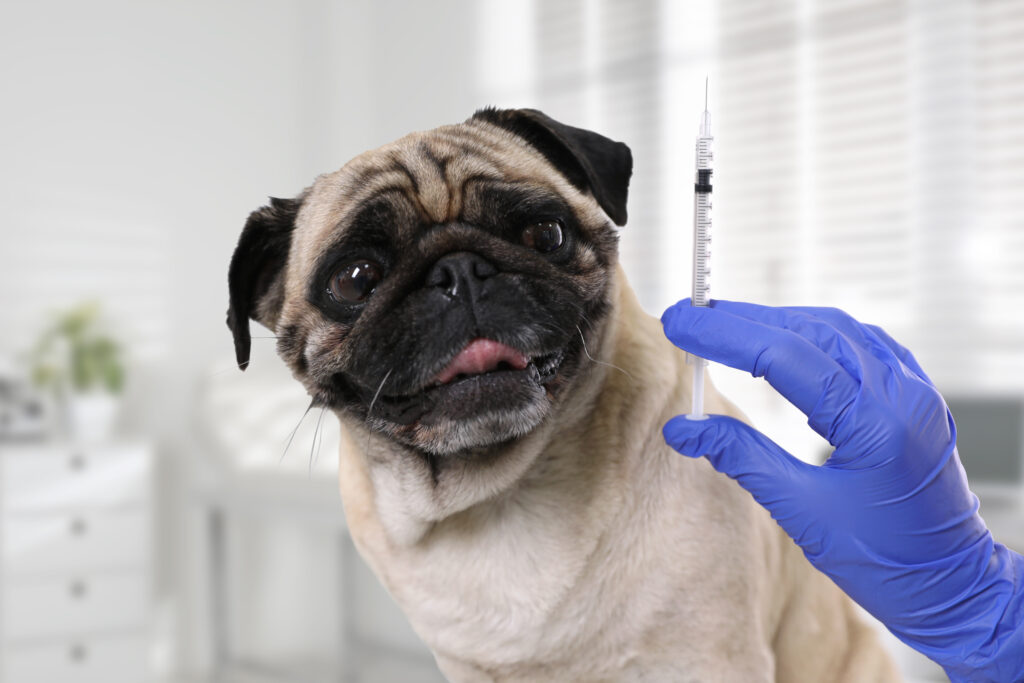Keeping your dog healthy and protected is a priority for every pet owner, and one of the key ways to do this is through regular vaccinations. But a common question many have is: how long do these vaccines last? This blog delves into the duration of dog vaccines, their significance, and the scheduling of booster shots. If you’re looking for personalized advice or need to schedule vaccinations for your dog, don’t hesitate to reach out to Harlingen Veterinary Clinic in Belle Mead, New Jersey, at (908) 359-2000.
Understanding Dog Vaccines
Dog vaccines are biological products designed to trigger a protective immune response in pets. When a vaccine is administered, it prepares the dog’s immune system to recognize and combat specific infectious agents. This process is crucial for preventing diseases that can be harmful or even fatal.
How Do Vaccines Work?
Vaccines contain antigens, which resemble the viruses or bacteria that cause diseases but don’t actually cause the disease. When a vaccine is given, it stimulates the dog’s immune system to produce antibodies. These antibodies remain in the dog’s body, ready to fight off the real disease if the dog ever gets exposed to it.
Types of Dog Vaccines
There are two primary types of dog vaccines; core and non-core.
Core Vaccines
Core vaccines are recommended for all dogs due to the severity of the diseases they prevent. These include:
- Rabies: A fatal disease affecting the brain and nerves, transmissible to humans.
- Distemper: A serious viral illness affecting respiratory, gastrointestinal, and nervous systems.
- Canine Parvovirus: A highly contagious virus causing severe gastrointestinal illness.
- Canine Hepatitis: Affects the liver, kidneys, spleen, lungs, and eyes.
Non-Core Vaccines
Non-core vaccines are given depending on your dog’s exposure risk. These include:
- Bordetella Bronchiseptica: Causes kennel cough, a highly contagious respiratory disease.
- Lyme Disease: Caused by ticks, leading to fever, lameness, and joint swelling.
- Leptospirosis: A bacterial disease affecting kidneys and liver, transmissible to humans.
- Canine Influenza: Respiratory infection caused by specific Influenza viruses.
The Lifespan of Vaccines
The protection provided by vaccines doesn’t last indefinitely. Core vaccines like rabies, distemper, parvovirus, and hepatitis generally last around three years. However, annual revaccination may be necessary for some non-core vaccines, like those for Bordetella and canine influenza.
Monitoring Immunity
Veterinarians may use titer tests to measure a dog’s immunity levels. These blood tests determine the presence and amount of antibodies in a dog’s system, helping to decide whether a booster is needed.
When to Get Booster Shots
It’s important to maintain a vaccination schedule for your dog. This schedule varies depending on the type of vaccine and your dog’s individual needs. Your vet will provide a tailored plan to ensure ongoing protection.
Booster Shots and Immunity
Booster shots are critical to maintain immunity over your dog’s lifetime. They “boost” the immune response to ensure continued protection against diseases. Regular boosters are especially important as the dog ages and their immune system weakens.
Consulting Your Vet
Always consult with your vet at Harlingen Veterinary Clinic to determine the appropriate vaccination schedule for your dog. They will consider factors like age, medical history, lifestyle, and risk of exposure to specific diseases.
In summary, understanding the types and duration of dog vaccines, and keeping up with booster shots, are essential steps in safeguarding your dog’s health. If you have questions or need to schedule a vaccination for your dog, Harlingen Veterinary Clinic in Belle Mead, New Jersey is here to assist. Contact us at (908) 359-2000 for expert advice and care.





